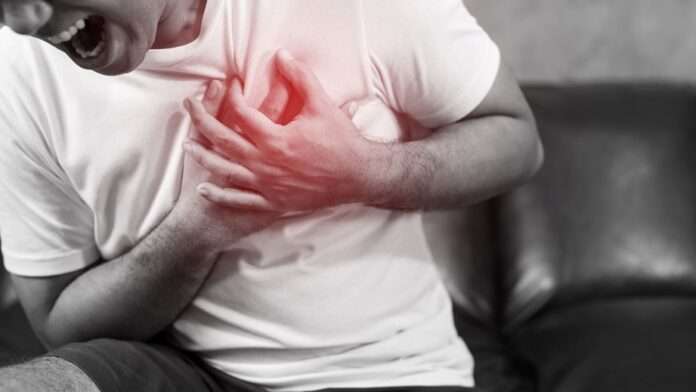Cardiovascular disease is a common and serious problem that can lead to death. If you’re interested in learning more about what cardiovascular diseases are, how they affect your body, and how they might be prevented, then read on!
What is cardiovascular disease?
Cardiovascular disease (CVD) is a general term that describes conditions that involve narrowed or blocked blood vessels that may lead to heart attack, chest pain (angina), stroke, peripheral artery disease, and other health problems. When the arteries carrying oxygen-rich blood to your heart, brain, and body become hardened and narrowed with plaque, this is known as CVD.
The symptoms of cardiovascular disease
1. Chest pain
Angina is one of the most common symptoms of cardiovascular disease. It usually involves discomfort or ache in the center, left side, or across the lower part of your chest. Sometimes people feel it in their shoulders, arms, neck, back, or jaw too. Symptoms often go away with rest and return when you start to do physical activity. While angina is the most common symptom of cardiovascular disease, others include shortness of breath, dizziness or lightheadedness, nausea or vomiting, and unexplained fatigue.
2. Chest Discomfort
A sudden discomfort in the center of your chest that lasts for more than a few minutes, or goes away and comes back, is a common symptom of sudden cardiac arrest. It’s caused by an electrical problem with your heart that leads to a very fast heartbeat. If the rhythm isn’t restored, it can lead to cardiac arrest and death.
3. Shortness of breath
You might notice shortness of breath when you lie down or after mild activity, such as climbing a flight of stairs or walking across your living room. The reason for this symptom is that fluid builds up in the tissues around the lungs when you have heart failure.
4. Cold and Puffy Hands and Feet
You might notice that your hands and feet feel cold and look pale or blue. That’s because poor circulation can cause your blood vessels to narrow, so your heart has to pump harder.
5. Fainting
While fainting is usually the result of a temporary drop in blood pressure or slowing of the heart rate, it can also be a sign of cardiovascular disease.
Effects of cardiovascular disease
Coronary artery disease- this type of CVD has the most visible effects on health. It is caused by plaque buildup in your coronary arteries that supply blood to your heart muscle. This condition usually develops over time, but you can actively reduce the risk of developing it by making healthy lifestyle choices. Symptoms that may occur when coronary artery disease is severe include sudden fatigue and shortness of breath when exercising, chest pain and pressure, rapid or irregular heartbeat, feeling lightheaded or dizzy, and nausea.
Heart attack- Another complication that can happen is a heart attack. It happens when there is not enough blood and oxygen reaching the heart because of a blocked coronary artery, which causes part of your heart muscle to die. If you think you have a heart attack, call 911 immediately and wait for help so you can be transported to the hospital. Symptoms that may occur with a heart attack include chest pain and pressure, shortness of breath, sudden fatigue, and nausea. Check this page to learn more How To Prevent Heart Attack Naturally.
How to prevent and treat cardiovascular disease
There are many things you can do to prevent cardiovascular disease from happening or recurring, such as being active and eating a healthy diet. If you have been diagnosed with CVD, your doctor will recommend a treatment plan that is best for you. The goal of this plan is to reduce your risk factors and lower your chances of getting another heart attack or stroke.
You can prevent CVD by making smart lifestyle choices. Eat a healthy diet, maintain a healthy weight, stay active, and don’t smoke. If you have diabetes, you also need to keep your blood pressure under control.
You can also enroll yourself in heart disease prevention in Denver, where they can guide you to a healthy heart with nutritional strategies in such a way that they have a long-lasting effect.
When it comes to cardiovascular disease, prevention is key! Risk factors are conditions or behaviors that increase the likelihood of developing CVD. It is possible to have risk factors for CVD and never develop the disease, but you are at a greater chance of developing it. Some of the most common risk factors include smoking, high blood pressure, obesity or being overweight, diabetes, family history of heart problems or stroke, being physically inactive, and having depression.






